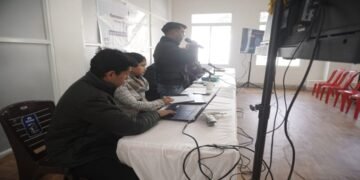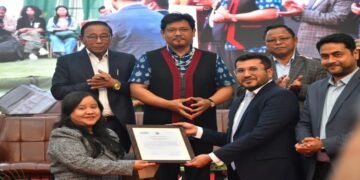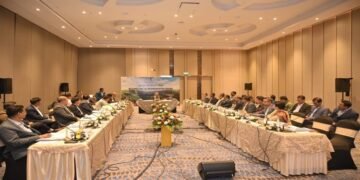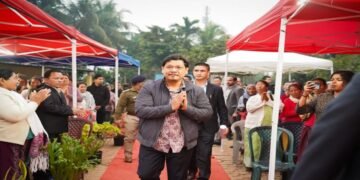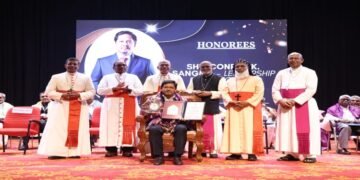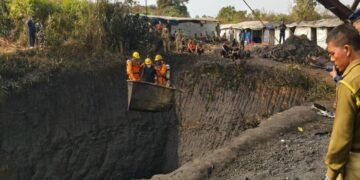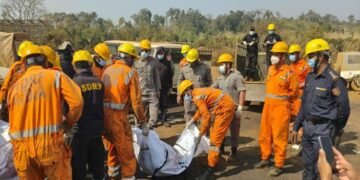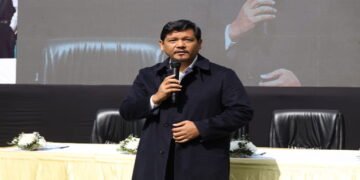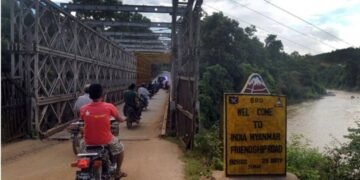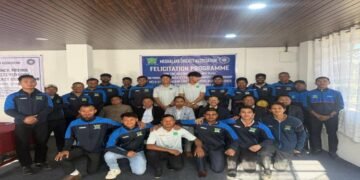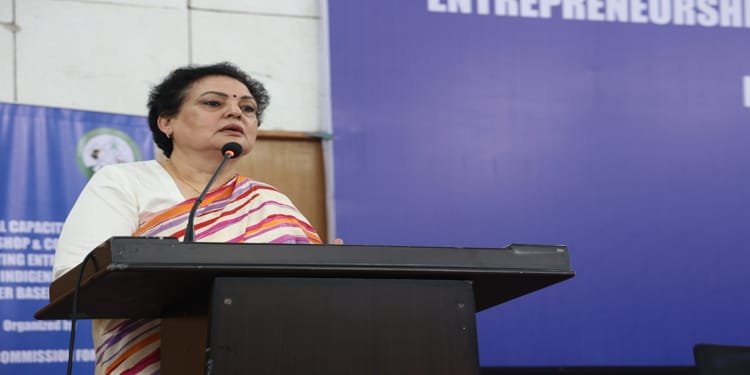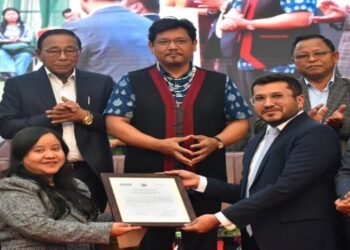Shillong (Meghalaya), July 8 : The National Commission for Women (NCW) and Meghalaya Biodiversity Board today jointly launched a two-day regional workshop on Non-Timber Forest Produce (NTFP) here to foster sustainable economic development and promote NTFP-based entrepreneurship among Indigenous women in the region.
During the launch of the Regional Capacity Building Workshop and Conference Chairperson, NCW, Ms. Rekha Sharma emphasized the importance of economic independence for women’s growth here today.
Ms Sharma encouraged participants to leverage the region’s rich biodiversity, comprising over 3000 plant species in local forests, to build sustainable enterprises. She noted that the workshop serves as a catalyst for long-term economic stability and empowerment among Indigenous women. NCW has started a new initiative of capacity building for tribal women who reside around the forest to start their business or work in their area of NTFP, she informed.
R. S. Gill , PCCF, and HoFF, highlighted the potential of identifying more forest products for national and international markets, highlighting the workshop’s role in skill development.
Ms. Meenakshi Negi, Member Secretary of NCW, underscored the significance of promoting entrepreneurship among Indigenous women in the Northeastern region based on NTFP. She added that with handholding, mentorship, and capacity-building, initiatives that NCW has undertaken, women can prosper in their respective fields.
Held at the State Convention Centre here, the event brought together cultivators, collectors, healers, traders of traditional medicine, folk healers, self-help groups, NTFP collectors, and farmers from Meghalaya and neighboring states.
Technical sessions featured insights from the experts – Ms. Alka Bhargava, Ms. Dimpy Bora, and Shri Pravin Bakshi, who discussed market dynamics and technology adoption in NTFP products.
The workshop focused on developing strategies for market integration, enhancing business operations through technology adoption, and creating actionable plans to overcome value chain challenges. Participants engaged in discussions facilitated by experts and stakeholders from sectors including State Women Commissions, Forest, AYUSH departments, and subject matter experts. This collaborative effort aimed at fostering sustainable economic development and promoting NTFP-based entrepreneurship among indigenous women in the region.
The first day of the program drew more than 250 participants including self-help groups, entrepreneurs’ traditional healers, and NGOs primarily from East Khasi Hills, Jaintia Hills, and Ri-Bhoi districts. Day two will include sessions on market dynamics, technology adoption, value chain challenges, and income augmentation.


